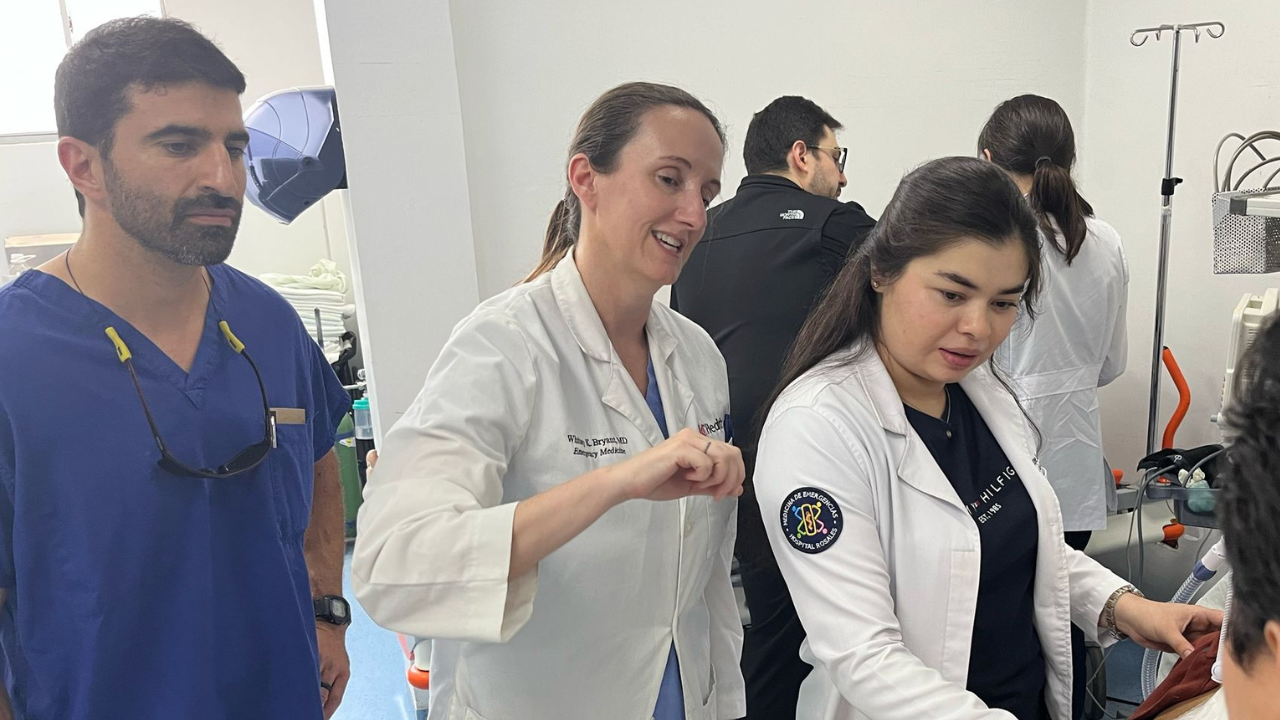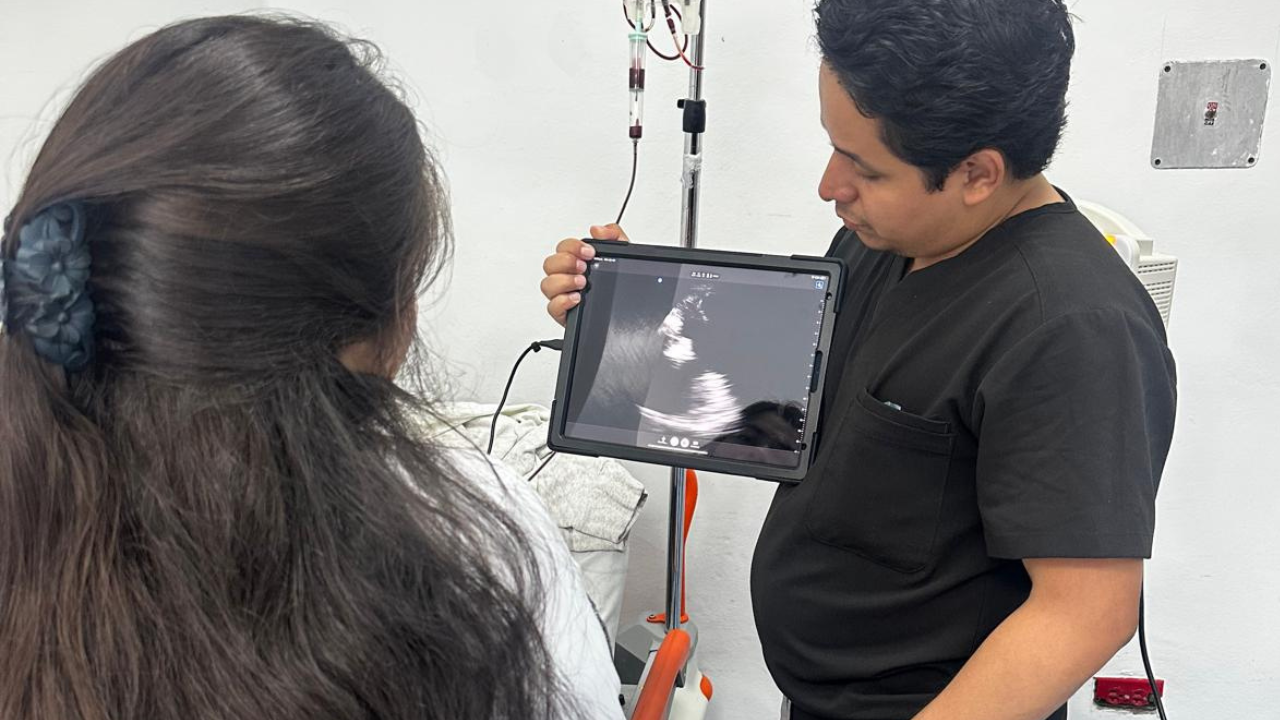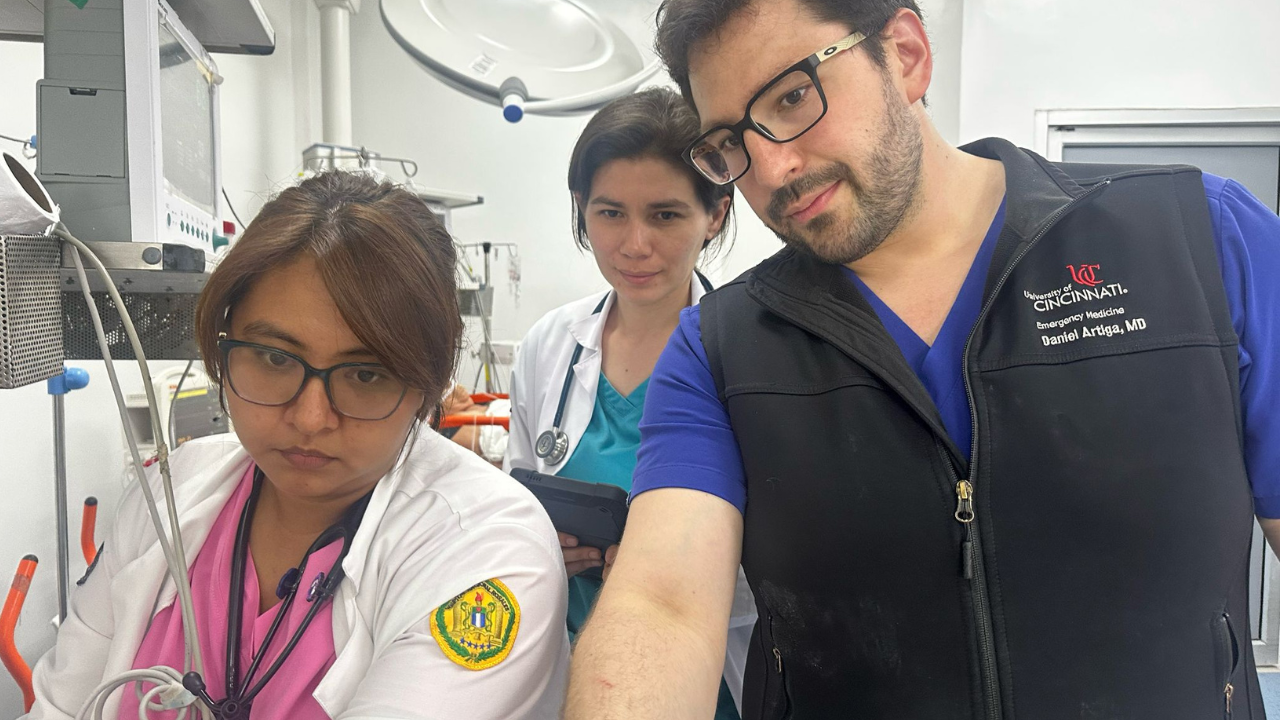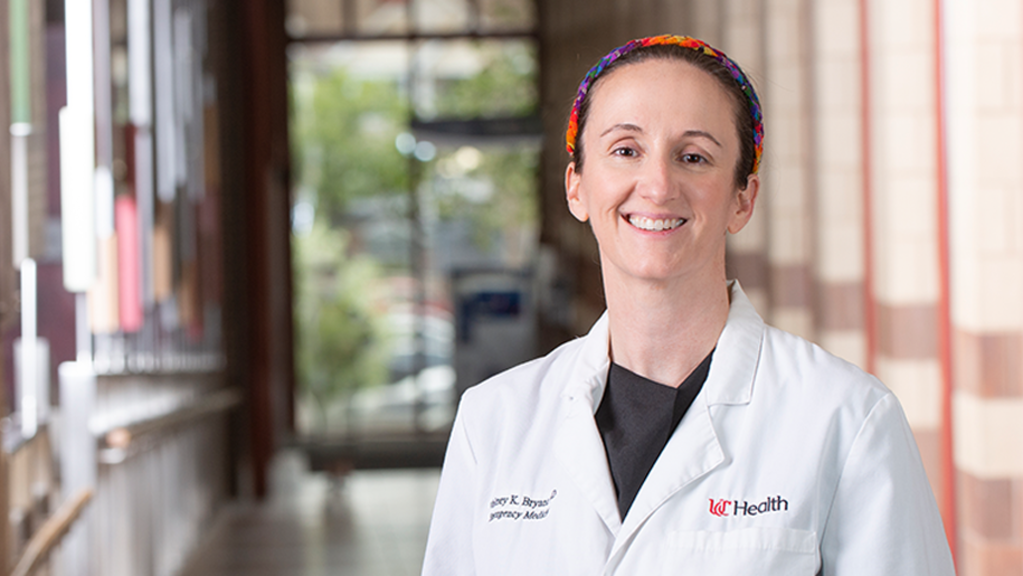With deep roots as the home of the oldest emergency medicine residency program in the United States, the UC and the University of Cincinnati are using their legacy and expertise to help build something new: a formal emergency medicine specialty in Central America.
Planting Seeds for the Future of Emergency Medicine
“Our mission is to support emergency medicine growing throughout the region,” says Whitney K. Bryant, MD, the faculty member leading the initiative. Dr. Bryant holds appointments in both Emergency Medicine and Environmental and Public Health Sciences and also directs the MD/MPH dual degree program at UC.
The work is as ambitious as it is necessary. In many parts of Central America, emergency medicine is still a developing field. Patients who arrive at hospitals with undiagnosed symptoms—those most in need of urgent, skilled triage—are often referred to specialty hospitals based on a guess rather than a clear diagnostic pathway. The result: misdirected care, delayed treatment, and outcomes that could be improved with specialized emergency training. UC Health is working to change that.
Building Emergency Medicine from the Ground Up
In El Salvador, a small but determined group of physicians is training to become the country’s first generation of emergency medicine specialists. The effort is still in its early stages, with just three years of residents currently enrolled in the program. These trainees, described as “pioneers,” are choosing a path without a formal national certification—yet.
Creating a fully accredited residency program is a long process. “It takes about a decade,” says Dr. Bryant. But UC Health’s Emergency Department is in it for the long haul. Their previous work in Guatemala City, which recently celebrated its first graduating class after years of collaboration, demonstrates the long-term commitment required to bring emergency medicine to life in a new country.



